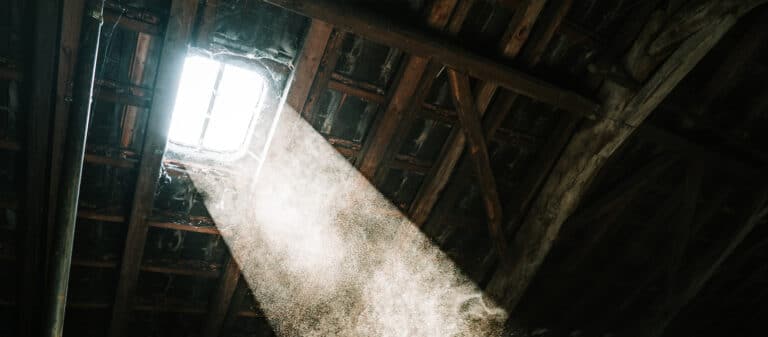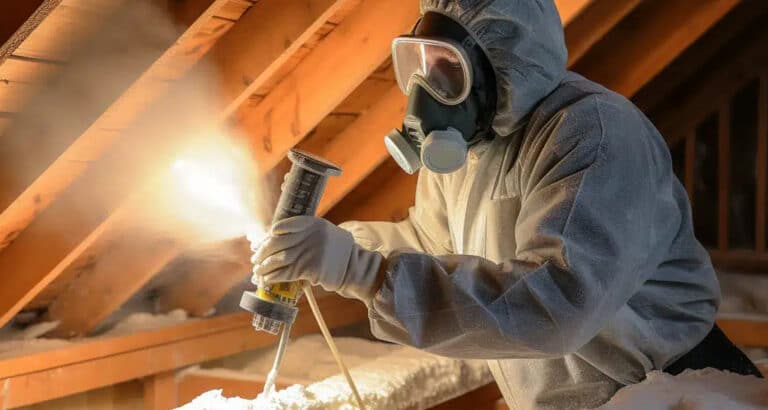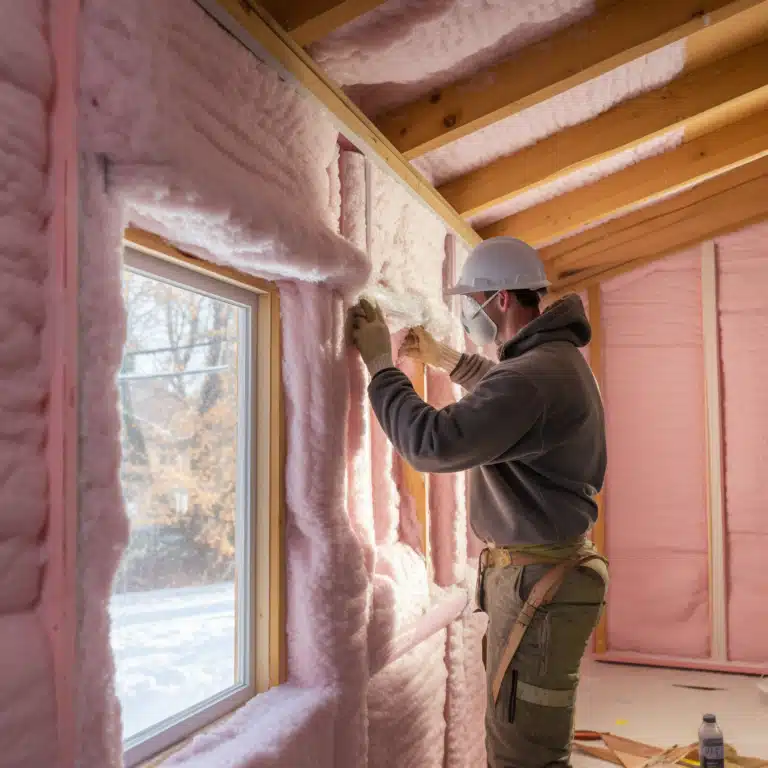As the price of everything continues to increase, consumers in Northeastern Pennsylvania are looking for more ways to save on their heating and cooling bills.
The US Department of Energy estimates that the average home can save up to 20% in heating and cooling costs by installing new insulation materials in attics, rim joists, crawl spaces, and more.
And, thanks to new provisions in the Inflation Reduction Act, consumers can save even more by offsetting a portion of the cost of new insulation materials via tax credits and rebates.
This article will walk you through how to save on new insulation for your home by discussing the requirements for the Insulation Tax Credit, plus additional rebates and credits in Pennsylvania you may be eligible for.
The Insulation Tax Credit: 25C Tax Credit
The 25C Tax Credit allows residents to offset up to 30% of the cost of new insulation materials installed between 2023-2032. This credit is capped at $1,200; you would need to pay $4,000 in new insulation materials to qualify for the full credit.
Maximizing Your Credit: Residents can bundle a home energy audit with insulation materials to maximize their credit. For example, if insulation materials cost you $3,500 and you purchase a $500 energy audit, you’d qualify for the full $1,200 tax credit. |
It’s important to note that this credit only covers the cost of the materials used, not any labor or installation costs associated with a project.
The insulation tax credit does reset every year, meaning you must redeem a credit the year the materials were purchased. The good news is that you can redeem the credit for consecutive years. For example, if you air-seal your house one year, you can still redeem a credit the next year if you decide to purchase new insulation.
Insulation Materials Covered Under 25C
The insulation tax credit covers both materials for insulation and air sealing. The insulation materials covered under the 25C tax credit include:
- Expanding foam, such as spray foam insulation
- Fiberglass batts
- Fiberglass rolls
- Blow-in insulation, such as cellulose
- Rigid boards
Likewise, air sealing materials with a Manufacturer’s Certification Statement are also covered under the credit, such as:
- Weatherstripping materials
- Caulk
- House wrap
- Canned spray foam
How to Become Eligible for the 25C Tax Credit
To qualify for the 25C tax credit, you will need to personally fill out tax Form 5695. The form requires a receipt of all insulation and air sealing materials used and itemizes all charges.
Starting in 2024, you will also need to provide a manufacturer’s product identification number for all materials purchased for insulation and air sealing.
Additional Tax Credits and Rebates
45L Tax Credit (Builders)
The 45L tax credit is worth up to $5,000 and is available for builders of single-family or manufactured homes that meet the following standards:
- A 50% reduction in annual heating and cooling consumption (30% for manufactured homes) when compared to homes that meet certain energy standards.
- A building envelope that accounts for 20% of that reduction.
- Energy-Star certification
Applying high-end insulation for walls or attics, such as spray foam, can help you improve your home’s envelope and promote greater energy efficiency.
High-Efficiency Electric Home Rebate Act
This federal tax rebate is available for low-income families that make less than 80% of their area’s median income range. The rebate amounts to $1600 for the full cost of insulation and weatherization materials. Rebates worth $800 are available for people who make between 80-150% of their area’s median income.
Pennsylvania’s Weatherization Assistance Program
Pennsylvania’s Weatherization Assistance Program provides direct funding to families in Pennsylvania who make at or below 200% of the federal poverty level. The average assistance for this program totals $7,669 and can be used to pay for insulating and weatherstripping materials directly.
To apply, you’ll need to contact the weatherization agency that serves your county.
More Ways to Save
On top of the energy savings that insulating materials can provide to any home, there are also a number of ways that residents and builders can save through tax credits and rebates when they upgrade their insulation. Talk to your local insulation contractor and ask what tax credits you may be eligible for when you install new insulation material.
FAQs: Insulation Tax Credit
How much can I save with the 25C insulation tax credit?
Residents can offset 30% of the total cost of insulation materials with a maximum value of $1,200 in tax credits. Credits do not cover labor, insulation removal, or installation costs.
Are DIY installations eligible for the tax credit?
Yes, DIY insulation materials qualify for the tax credit as long as you provide a receipt for all materials used.
Is there a limit to the 25C tax credit amount?
The 25C tax credit is capped at $1,200 for insulating materials and at $2,000 for various home heating upgrades, such as installing heat pumps.










